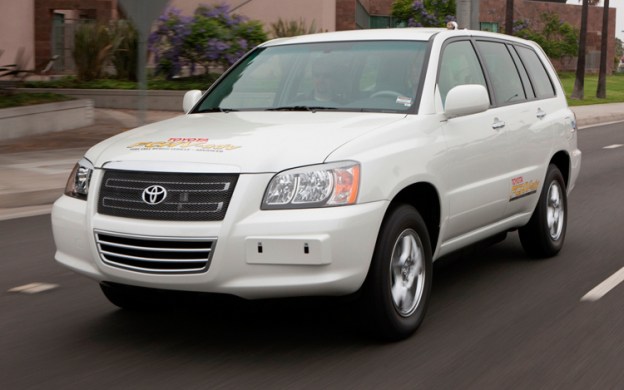 You can’t walk into a dealership and buy a car powered by hydrogen fuel cells, but what if you could? Researchers are finding out. The National Renewable Energy Laboratory (NREL), part of the U.S. Department of Energy (DOE) has acquired four fuel cell vehicles from Toyota.
You can’t walk into a dealership and buy a car powered by hydrogen fuel cells, but what if you could? Researchers are finding out. The National Renewable Energy Laboratory (NREL), part of the U.S. Department of Energy (DOE) has acquired four fuel cell vehicles from Toyota.
“We’re looking at the whole system—from renewable hydrogen production and vehicle fueling equipment to the impact of driving patterns and behavior on vehicle performance,” said NREL program manager for fuel cell and hydrogen technologies Keith Wipke. “Because the vehicles will be four or five years old by the time our two-year loan ends, we will also be able to observe extended durability and reliability, which is critical to their commercial success.”
Toyota has dubbed the model being tested Fuel Cell Hybrid Vehicle-advanced (FCHV-adv), and it really does operate like a hybrid without a gasoline engine.
The vehicles are based on the first generation Highlander. Each SUV is equipped with a fuel cell, hydrogen fuel tanks, electric motor, nickel metal-hydride battery, and a power regulator. The fuel cell can be used to drive the car (by providing electricity to the motor) and to charge the batteries.
To store hydrogen, the FCHV-adv has four tanks; two under the rear seat and two in the spare tire wheel (drivers had better get a AAA membership). The fuel cell vehicle also has aluminum body panels, to keep weight down.
All of that technology yields fuel economy of 68.3 miles per kilogram of hydrogen, and a range of 491 miles.
To complete the NREL’s holistic test of hydrogen motoring, the agency will use sustainably-generated hydrogen to fuel its SUVs. It will rely on the Wind-to-Hydrogen Project, which uses wind turbines and photovoltaic arrays to generate electricity for electrolysis, the process in which water is split into hydrogen and oxygen.
Editors' Recommendations
- Hyundai’s hydrogen fuel cell truck makes hauling freight green and glamorous
- Toyota uses hydrogen fuel cells to power one of its Japanese factories
- A self-driving Toyota will escort the 2020 Olympic flame in Tokyo
- The Skai is a multipurpose flying car powered by hydrogen fuel cells


